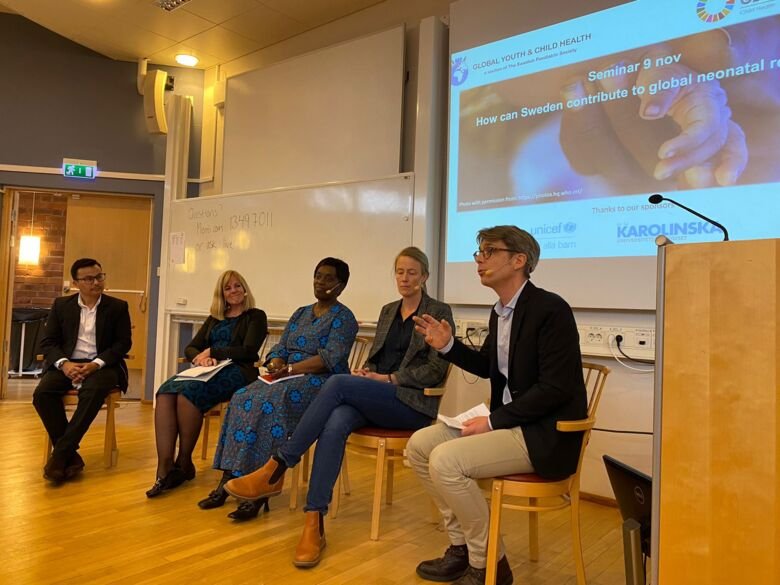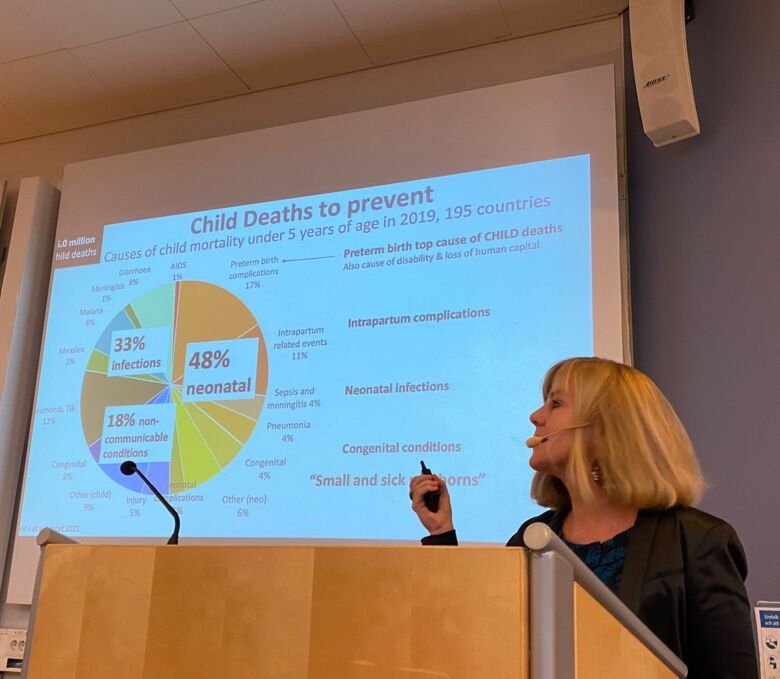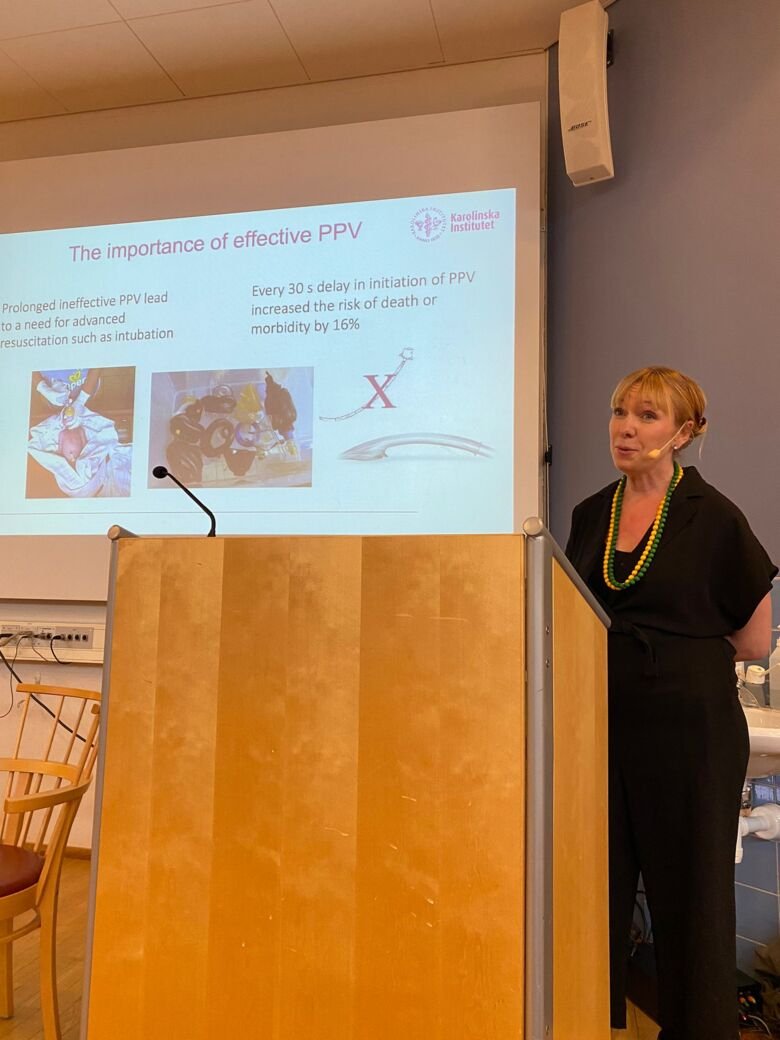Seminar: How can Sweden contribute to Global Neonatal Research

On November 9, the seminar ”How can Sweden contribute to Global Neonatal Research” was organized on the initiative of Global Youth and Child Health, a section of the Swedish Paediatric Society and the Swedish Network for Global Child Health. Around 50 physical participants and up to 70 online with different engagements in global newborn health attended the seminar. From researchers and academics to clinicians working for NGOs and public health specialists participated.
An estimated 4,4 million newborn deaths and stillbirths occurred worldwide in 2020, thus it is paramount to improve global newborn health if we are to reach the Sustainable Development Goals. Research is an important tool to find effective evidence-based interventions for this. This seminar aimed to discuss the important knowledge gaps to improve newborn health globally and HOW Sweden can BEST contribute to address them.

Following is an introducation of all speakers that presented at the seminar. All presentations were recorded and can be found here.
First keynote speaker was Joy Lawn, a world-leading perinatal epidemiologist, Professor of maternal, reproductive and child health at London School of Hygiene and Tropical Medicine. She is one of the most influential persons in the world regarding newborn health. Professor Lawn spoke about research gaps and what we can do to close those gaps.
Stefan Swartling Peterson is former global chief of health at UNICEF, now Health Specialist at UNICEF Sweden and Professor of Global Transformations for Health at Karolinska Institutet presented online from Kigali. He spoke of the importance of the health systems to improve newborn health with examples from Uganda.
The last keynote speaker Diane Gashumba is the Ambassador of Rwanda to the Nordic countries and former minister of health in Rwanda, but she is also a paediatrician and have a long engagement in global child health. She spoke about the importance of primary health care to improve maternal health and prevent neonatal deaths with examples from Rwanda who aims for universal health coverage through an innovative system with nurse entrepreneurs.
Presentations from researchers affiliated to Swedish institutions
The seminar showcased eight short presentations from researchers affiliated to Swedish institutions with focus on current projects in newborn health aiming to cover knowledge gaps.
Mats Blennow, Professor emeritus in perinatal neuroscience at Karolinska Institutet, who also have clinical experience with Medecins Sans Frontier and lately been working in the Guideline Development Group for WHO recommendations for the care of preterm or low birthweight infants. He presented identified knowledge gaps from those guidelines.
Viveka Nordberg, a neonatologist at Karolinska Sjukhuset, Chair of the NGO Paediatric Health Initiative and PhD in neonatal infectious diseases with focus on antibiotic resistance. She spoke about “New strategies to identify virulent and multidrug resistant bacteria in neonates”.
Ylva Thernström Blomqvist, paediatric nurse and associate professor at Uppsala University and Agnes Linnér, neonatologist and PhD at Karolinska Institutet and co-author of the important iKMC trial on immediate Kangaroo Mother Care. They spoke about infant and family centered newborn care.
Thomas Drevhammar, anaesthesiologist at Östersunds Sjukhus and associate professor at Karolinska Institutet and a leading expert on CPAP solutions for newborns presented about CPAP and respiratory support.
Ashish KC, senior lecturer at Gothenburg University and priorly affiliated with Uppsala University has made several important studies on implementation of immediate newborn care interventions and resuscitation guidelines in Nepal. He presented about neonatal resuscitation.
Ola Andersson, neonatologist, and associate professor at Lund University is a world leading expert in delayed cord clamping and spoke about the importance of sustained cord circulation.
Susanna Myrnerts-Höök, paediatrician, PhD and Nicolas Pejovic, neonatologist, PhD, both clinical researchers affiliated to the Department of Global Public Health at Karolinska Institutet who conducted the important NeoSupra Trial about laryngeal mask airway in neonatal resuscitation in Uganda. They presented about the uses of laryngeal mask airway for both resuscitation and surfactant delivery.

Kristina Elfving, paediatrician, PhD with research focus on infectious diseases and malnutrition affiliated with Gothenburg University. She presented about probiotics to low birth weight infants and her upcoming trial in Rwanda.
The seminar ended with a panel discussion led by Tobias Alfvén, Professor of Global Child Health at Karolinska Institutet highlighting “What” knowledge gaps we should focus on and “How” we should address them in the best way.
Please see the key messages and takeaways from the seminar in the document below and all videos of presentation here.
